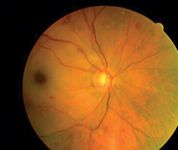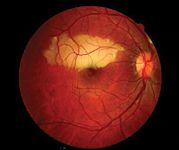Involve primary-care doctor in retinal artery occlusion
Referral to a primary-care physician is a critical component in the care of patients with a retinal artery occlusion because the ophthalmic event usually is a manifestation of a systemic disease, which by itself is associated with increased morbidity and mortality, according to experts.
Editor's Note: The February, March, and April issues of Optometry Times will explore why and how optometrists should look at patients globally in terms of their overall systemic health. Further emphasis will be placed on working collaboratively with colleagues in primary care and retina to ensure that all treatable conditions are addressed and to help patients maintain optimal vision.
In this three-part series, Advanstar Communications' Action for Outcomes initiative returns, this time with an in-depth look at vascular conditions. As well as serving as a wake-up call, the action plan emphasizes core competencies, best practices, and shared responsibility among all stakeholders in the patient's health-care ecosystem. An interdisciplinary approach to addressing this matter will provide specific knowledge and practical strategies to improve the treatment of patients with these conditions.

"The importance of determining and addressing the underlying cause of retinal arterial occlusive disease is underscored by available data that show post-event mortality rates of [about] 15% at 1 year and 55% after 7 years," said Dr. Gurwood, professor of clinical sciences, The Eye Institute of the Pennsylvania College of Optometry, Salus University, Philadelphia.

"Heyreh dispels the myth that an embolus does not have to be completely lodged in the vessel for occlusion to occur," he said. "It has to be stuck like a cork in a wine bottle. If the occlusion is not complete and blood can flow around the obstruction, patients will remain unaware of their precarious position."
Newsletter
Want more insights like this? Subscribe to Optometry Times and get clinical pearls and practice tips delivered straight to your inbox.